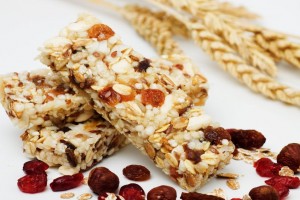You probably know that sugar wreaks havoc in our mouths, but do you know that some parts of your healthy lifestyle routine may be harmful to your teeth? Read on to find out what are they, how they affect your oral health and how to counter them.
Snacking on muesli bars and dried fruits
 Frequently consumed as a substitute to unhealthy afternoon snacks or for an energy boost, many people turn to muesli bars. With all the nuts, oats and dried fruits it contains, muesli bars should be healthy, right?
Frequently consumed as a substitute to unhealthy afternoon snacks or for an energy boost, many people turn to muesli bars. With all the nuts, oats and dried fruits it contains, muesli bars should be healthy, right?
Unfortunately, the ingredient holding the bar together is generally sugar, which makes every bite sticky. Similarly, dried fruits are also high in sugar and sticky in nature. Sticky foods tend to get trapped between our teeth. Hence, it will require a relatively longer time for the saliva to break it down and ultimately contribute to tooth decay.
Tip: A healthier option would be to consume fresh fruits, cheese or plain yoghurt (without any flavouring or sugar added) instead.
Consuming citrus fruits and fruit juices
 Citrus fruits such as oranges, grapefruits and lemons are rich in Vitamin C, refreshing to eat and may even aid in weight loss. However, due to the acidic nature of the fruits, consuming them regularly would mean that one’s teeth are under continual acid attack.
Citrus fruits such as oranges, grapefruits and lemons are rich in Vitamin C, refreshing to eat and may even aid in weight loss. However, due to the acidic nature of the fruits, consuming them regularly would mean that one’s teeth are under continual acid attack.
This is similar for fruit juices. In our of our previous blog post, we shared a research which found that fruit juices (especially lemon and apple juice) cause sustained acid attack on one’s teeth. In the long run, this leads to dental erosion (loss of tooth enamel), which may result in tooth sensitivity.
Tip: Consume whole fruits instead of drinking juices. Rinse your mouth after consuming citrus fruits and wait for at least 45 minutes before brushing your teeth. This will prevent you from “brushing” your tooth enamel away.
Drinking sugar-free carbonated drinks
 With the growing awareness of links between high sugar intake and obesity/diabetes/tooth decay, many have switched to ‘sugar-free’ or ‘low-sugar’ (aka ‘zero’ or ‘diet’) alternatives. However, a recent research done by the University of Melbourne found that there were no significant differences between the erosive potential of sugared and sugar-free carbonated drinks on one’s teeth.
With the growing awareness of links between high sugar intake and obesity/diabetes/tooth decay, many have switched to ‘sugar-free’ or ‘low-sugar’ (aka ‘zero’ or ‘diet’) alternatives. However, a recent research done by the University of Melbourne found that there were no significant differences between the erosive potential of sugared and sugar-free carbonated drinks on one’s teeth.
Tip: Check the ingredient list for acidic additives, particularly citric and phosphoric acid, for an indication of erosive potential. If drinking carbonated drinks, do so during meal times and wait for at least 45 minutes before brushing your teeth.
Drinking wine
 Studies have shown that moderate consumption of wine reduces the risk of cardiovascular diseases. It may be good for the heart but it is not as good for the teeth. With a pH value of 3 to 4, the acidity of wine is similar to most carbonated drinks. It causes acid attacks that would cause our teeth enamel to soften.
Studies have shown that moderate consumption of wine reduces the risk of cardiovascular diseases. It may be good for the heart but it is not as good for the teeth. With a pH value of 3 to 4, the acidity of wine is similar to most carbonated drinks. It causes acid attacks that would cause our teeth enamel to soften.
Tip: Swish water in-between sips of wine to allow the bubbles to help clean your teeth. Order a salad or a cheese platter to go with your wine. Vegetables have high water content which dilutes the acidity. The calcium in cheese lowers pH levels in your mouth, helping to fight plaque, prevent cavities, and protect your enamel. Chewing would also stimulate the flow of saliva, which helps to rebalance the pH level in the mouth and slow down mineral loss from the teeth.
Regular physical activity
 We all know that exercising regularly is beneficial to our minds and bodies. Running is one of the activities that we constantly encourage our colleagues at SDG to do (check out our album). Nonetheless, one needs to be aware of the implications certain workout activity has on our oral health. Endurance sport dries out one’s mouth, while chlorine found in improperly-maintained swimming pools can be harsh on the teeth.
We all know that exercising regularly is beneficial to our minds and bodies. Running is one of the activities that we constantly encourage our colleagues at SDG to do (check out our album). Nonetheless, one needs to be aware of the implications certain workout activity has on our oral health. Endurance sport dries out one’s mouth, while chlorine found in improperly-maintained swimming pools can be harsh on the teeth.
Tip: Try to breathe with your nose and constantly hydrate yourself (and your mouth) with water. Always opt for healthy alternatives like coconut water or water with a pinch of natural, unprocessed salt instead of sports drinks. Ensure that the swimming pool you visit is frequently maintained.
With this list, may we all lead a healthy lifestyle and have healthy bodies, minds and mouths!
Please subscribe to our blog for more interesting dental related topics or ‘Like’ our Facebook page for the latest updates on our team activities.





